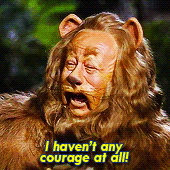Business As “Usual”
When I started college I knew there would be times like this where my school work, environmental work, lectures and all else might keep me from posting to my blog as often as I’d like and the last two months have been just that. I’ve been “radio silent” for some time between traveling overseas for an incredible experience that I will soon share with you, final exams, a new job I’ll tell you about soon, and one marine science expedition after another to start the summer. I will be back on the “high seas” on a week long shark tagging trip later this week, but will do my best to write a post or two between now and then given all that’s going on in the world starting with Business As Usual…
I was going to title this post Cowards but I generally see myself as a polite, respectful person and thus settled on Business As “Usual” instead.
As much of the world now knows, this week President Trump clearly announced that he’d not have any reservations over accepting information about a political opponent from a foreign government (sound familiar?), nor feel compelled to inform the FBI if ever contacted about such information.
I will leave it to the expert political scientists to evaluate most of the President’s troubling comments but should anyone wonder whether his comments are acceptable (or legal), you need only read the unprecedented statement that the head of the Federal Elections Committee, a Trump appointee, issued while also wondering out loud why her office would even need to explain that working with a foreign government, or not informing authorities about being approached, should be common sense. You can read all about it here from a Washington Post article which starts with the following:
Federal Election Commission Chairwoman Ellen Weintraub released a statement Thursday making clear that candidates for public office may not receive help from a foreign government, in what appeared to be a warning to President Trump, who said he would consider taking information about an opponent from another country.
Tweeting her statement, Weintraub wrote, “I would not have thought that I needed to say this.”
The President and his profound lack of character is now well known to the world and frankly I’m over it and him. His record speaks loudly for itself and the sooner we can replace him, the better (November 2020 can’t come soon enough!).
However, what actually concerns me is the fact that nearly his entire political party, yes the Republicans, are so systemically silent in response.
Politics aside, as an American it’s truly troubling that virtually all members of his party run so scared of the man (and why, for fear of an early morning tweet?) that they avoid calling him out over those comments and countless others. Their silence facilitates the fire to grow and grow.
These educated men and women in our Congress and Senate are in prominent positions to act like leaders, to be examples for others, especially young people, to follow. They hold in their hands the morals, ethics and laws of our nation and yet virtually all of them remain silent as a storm that erodes our country rages around them.
Their silence has become their accepted approach to politics, it is how they conduct their business but it does not go unnoticed. And I am certain that I am not alone in these observations nor in thinking that they are cowards to stand silent and by doing so condone his behavior.
I can’t say I am surprised, the Republicans’ silence has for too long been their typical “business” strategy to all things climate change. As they sit silently, or worse when they enthusiastically promote antiquated industries such as oil and coal in places like West Virginia, Kentucky, Texas and elsewhere in hopes of garnering votes and political donations to perpetuate their time in office, Republicans are placing their selfish political interests above serving our country and that, most certainly, is shameful.
In order to solve our climate crisis, all of our elected leaders, no matter their party affiliation, are going to need to become involved in creating meaningful solutions, to actively engage in productive debate over what is happening right before our eyes and in supporting solutions to the problem by helping our country transition away from fossil fuels and to our sustainable futures. To avoid these topics, or for that matter avoid scolding a terribly misguided President, will not make things better and likely makes them worse. And while we can likely tolerate the circus that is the Trump White House until the next election, we do not have any time to waste when it comes to our climate crisis.
To solve the climate crisis we need and deserve patriots and leaders, not cowards.
Business as usual will not work.
Policies and products that emit carbon pollution into our atmosphere and oceans must end. We need elected officials who will make the hard choices to support transformational changes that in many cases will threaten their ability to be re-elected and that put our nation and environment ahead of politics. Avoiding the topic as happened over the last 8 years here in Florida under Governor, now Senator, Rick Scott or is happening in Washington right now, is no longer acceptable.
All of us likely need to be a bit less polite and far less patient when it comes to saving our planet.
And you know what? On second thought, I should have titled this blog Cowards. That’s what those who stand silent and allow this to happen to our country and planet are: COWARDS.


